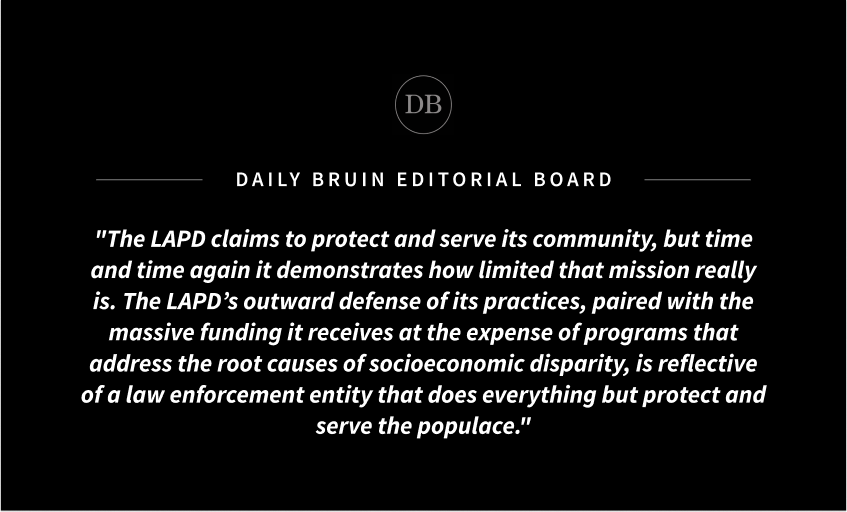UCLA’s Latino Data Hub explores causes of disparities in Latino communities

The Public Affairs Building is pictured. UCLA’s Latino Policy and Politics Institute launched its Latino Data Hub, which includes information on more than 80 indicators, in the fall. (Daily Bruin file photo)
UCLA’s Latino Policy and Politics Institute launched its Latino Data Hub in October, which provides data on demographic factors that might contribute to inequality in Latino communities in the United States.
The data hub, whose data was sourced from the U.S. Census Bureau’s five-year American Community Survey as well as voting data, includes information about more than 80 different indicators, ranging from access to health insurance to home ownership and voting eligibility, said Rodrigo Dominguez-Villegas, the LPPI’s director of research. These indicators will allow users to understand how factors such as gender, age, citizenship status and veteran status, as well as the intersection of these groups, might contribute to disparities in Latino communities, he said.
The free data hub, which includes interactive maps and graphs in English and Spanish, was designed to be accessible for people who do not come from traditional social science or data science backgrounds, said Jie Zong, the project’s director and lead developer.
“These types of data lead to more accurate diagnosis and better-targeted policymaking,” Zong said. “I think the nuance of the insights we provide is very powerful.”
Alicia Casillas, a third-year Chicana and Chicano studies and English student, said the database could be useful for students in going into policymaking and Chicano studies by allowing them to interact with the social and political needs of the communities they serve.
Providing students with the opportunity to familiarize themselves with a database might also allow a new generation of policymakers and students to be aware of community issues and statistics, Zong said.
New policies based on outdated or inaccurate data could harm vulnerable populations and increase existing inequalities, Rodrigo Dominguez-Villegas said, adding that this makes resources like the data hub critical.
“We want to definitely be able to provide tools for the general public but also for the media, community-based organizations, policymakers and their staff members, the private sector, the media (and) philanthropists to be able to push for fact-based policymaking, in an era where that is being seriously challenged,” Dominguez-Villegas said.
According to the LPPI website, the database also disaggregates data to disprove the idea of a Latino monolith, as individuals face different obstacles and have different needs to address them.
Dominguez-Villegas added that Afro-Latino people have historically faced systems of discrimination and inequality, especially in home ownership and higher education, that lead to unequal economic opportunities. The Latino Data Hub aims to address these inequalities by disaggregating data not only by ethnicity but also by race, Dominguez-Villegas said.
“When you talk about Latinos, Cubans are very different from Mexicans and very different from Puerto Ricans because of legal status, migration background and socioeconomic status,” Zong said.
Zong said the database incorporates tools that are accessible to individuals with at least a middle school education. She added that while the data hub is already used by professors, she hopes that the user base will expand to both undergraduate and graduate students.
Dominguez-Villegas added that he believes it is more dire than ever to push for fact-based policy-making in an era where it is being seriously challenged, as he thinks there are elected officials who do not believe in science and evidence.
“Data by itself is not all that powerful, but when you can tell compelling stories, that can then lead to action and you can mobilize data with those stories,” Dominguez-Villegas said. “That is our goal.”





